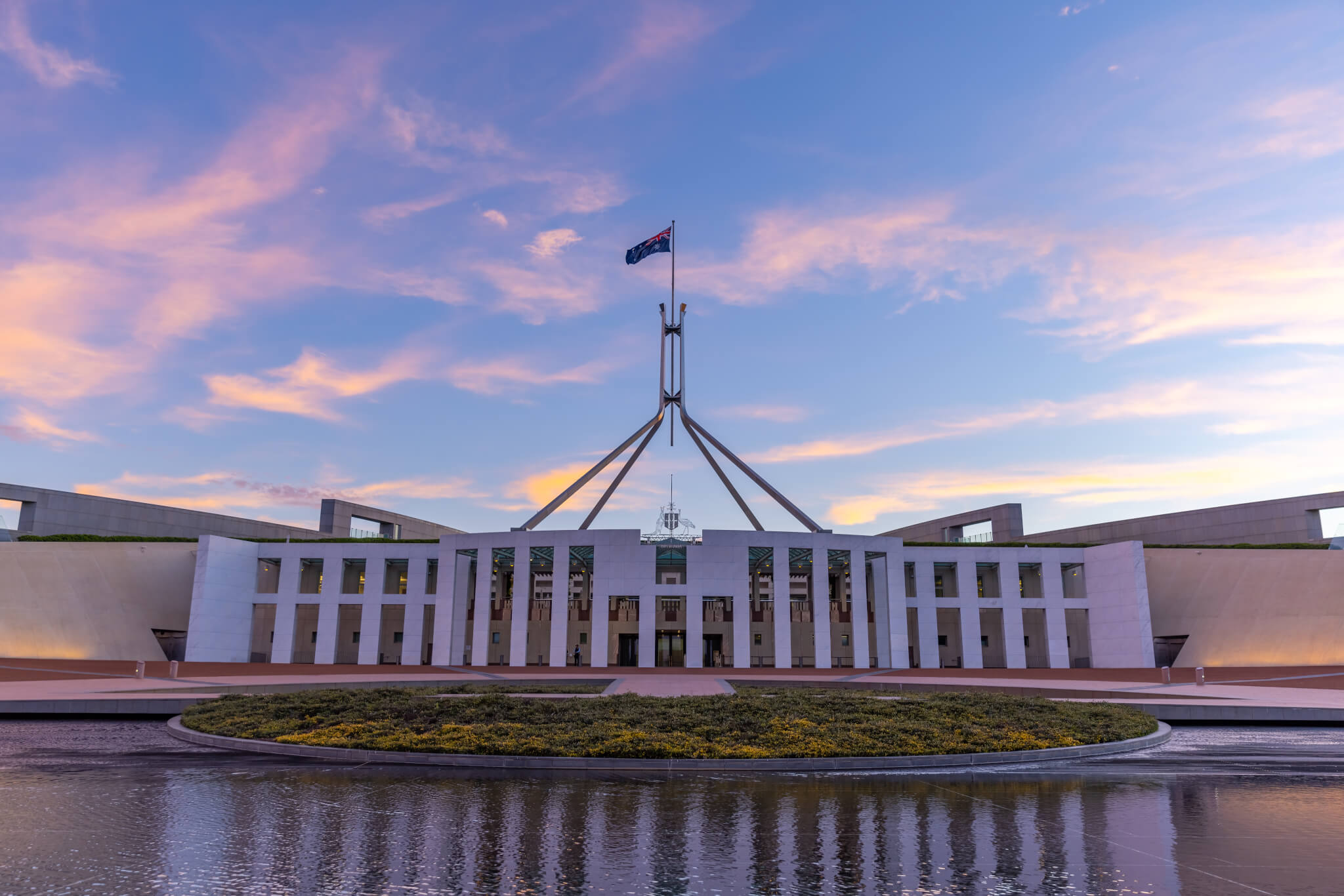Right now, Australia has no federal recognition of human rights. But that could soon change.
The Parliamentary Joint Committee on Human Rights has just delivered its final report on its major Inquiry into Australia’s Human Rights Framework – and with it, a host of recommendations with the potential to transform our legal framework for human rights.
EJA made a submission to the Inquiry in June last year, outlining why the government must follow the Australian Human Rights Commission (AHRC) recommendation to create a Federal Human Rights Act as soon as possible.
In the submission, we also outlined why it is essential that the Act protects the right to a safe, clean, healthy and sustainable environment, the right to protest, and the cultural and environmental rights of First Nations peoples.
Two months later our lawyers, Ally McAlpine and Elke Nicholson, gave evidence at the Parliamentary Joint Committee Inquiry into Australia’s Human Rights Framework to seek inclusion of the above protections.
Now, we are pleased to see the Committee has taken on most of our recommendations and made several references to EJA’s submission throughout its report!

What are the recommendations?
The Committee’s biggest recommendation is for the federal government to establish a federal Human Rights Act.
Unlike many other United Nations member countries, very few human rights are protected in our Constitution or other federal legislation.
Differing approaches and regimes in Australian states and territories mean there are huge gaps and inconsistencies for Australians’ human rights protections.
A federal Human Rights Act would resolve this by establishing a consistent legal framework across the continent.
The Committee also makes some key recommendations for specific rights to be included within a Human Rights Act, which EJA advocated for in our submission last year.
The Committee recommends including the right to a healthy environment in any new Human Rights Act.
This right is fundamental to the realisation of all human rights. Without a healthy planet to sustain us, other human rights will inevitably be eroded.
It expands on this to recommend further consideration when drafting the right to a healthy environment, so that it is articulated in broader terms in line with international human rights law, namely the ‘right to a clean, healthy and sustainable environment’.
The Committee recommends consultation with Aboriginal and Torres Strait Islander peoples on how best to recognise the relationship between the right to a healthy environment and the rights to culture, health and self-determination for Aboriginal and Torres Strait Islander peoples.
It also explicitly recommends consultation with Aboriginal and Torres Strait Islander peoples in relation to the framing of Indigenous peoples’ right to culture.
This will ensure it adequately captures all applicable rights under international human rights law, such as those arising under the UN Declaration on the Rights of Indigenous Peoples.
Ideally, First Nations cultural rights will include the right to protect and restore Country in recognition of the deep and enduring connections between Aboriginal and Torres Strait Islander cultural traditions and their lands, waters and sky.
Proper consultation is also essential to the principle of ‘nothing about us without us’. This is a principle of First Nations justice which emphasises that First Nations peoples must be genuinely involved in designing legislation and decision making that may impact them.
The Committee recommends including the right to peaceful assembly and freedom of association in a federal Human Rights Act.
This is vital to any strong democracy and helps protect political expression. Civil society's ability to protect our environment relies on being able to organise, protest and advocate without repression.
The Committee recommends including a general participation right. This right asserts that people should be involved in creating and implementing laws affecting their rights, a fundamental underpinning to good environmental governance.
We’re pleased to see the final report includes the above key recommendations – a huge win for environmental and First Nations justice!
The Committee also makes a range of other vital recommendations beyond EJA’s key asks, including:
- A significant and ongoing commitment to national human rights education
- Requirements for public servants to fully consider human rights in the development of legislation and policies
- Specific to implementing a Human Rights Act:
- allow cases to be brought directly to a federal court, without the need for conciliation, when conciliation is not appropriate
- specific provisions should be made to protect individuals from adverse costs orders when bringing action against public authorities under a HRA, in line with the government’s proposed equal access cost protection provisions for federal anti-discrimination claims
What happens next?
The federal government is required to respond to the Committee’s report within three months of the report being tabled. We want to see the federal government act on the recommendations of the Inquiry and introduce a Human Rights Act bill to Parliament as a matter of priority.
While the Committee’s report provided many important recommendations for a strong federal human rights framework, there remain some key areas to improve on.
Firstly, the wording around the right to a healthy environment needs to be much more robust than what is currently proposed.
The current wording would allow people to be exposed to ‘lawful’ pollution, which seriously undermines the purpose of the right. The right also needs to be able to accommodate changes in international law and to cover the breadth of environmental challenges to the realisation of this basic human right.
Secondly, while we’re pleased to see the right to protest included in the Committee’s report, the recommendation stopped short of specifically naming the right to peaceful assembly and freedom of association in defense of the environment – a recommendation EJA made in line with the Escazú Agreement.
We’re hopeful there is scope to advocate for these improvements in any future Human Rights Act bill.
Read more about our work on human rights

Make a difference
The challenges we face are vast. The time to push for large-scale system change is now.
Our financials
We have a long-standing commitment to sound fiscal management, accountability and transparency.
We encourage you to investigate before you donate.
Join us
The law is a powerful tool to disrupt the status quo and make governments and corporations accountable.
Join us and let's build a radically better world.




